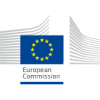Data-Driven Upcycling: Unlocking New Value Chains for Recycled Plastics
1 year agoMagIC's Contribution to a Thriving Circular Plastics Economy
Building upon its expertise in data science, management research, and sustainability, MagIC proposes a multi-pronged approach to address the challenges outlined in the call and contribute to the following expected outcomes:
1. Increased Deployment of Advanced Digital Solutions:
- Leverage Data Science, particularly AI and Blockchain, to develop traceability solutions for plastic materials throughout the value chain.
- Utilize IoT to monitor waste streams and optimize collection and sorting systems, ensuring high-quality secondary materials.
- Collaborate with partners to develop AI-powered platforms that connect manufacturers, recyclers, and consumers, promoting transparency and trust in secondary plastics.
2. Emergence of New Upcycled Plastic Value Chains:
- Utilize Marketing research to understand consumer preferences for upcycled products and identify new market opportunities.
- Apply Finance and Risk Management expertise to develop financial models for assessing the viability of upcycling businesses.
- Work with partners to identify potential applications for upcycled plastics through Information Systems research and data analysis of existing product life cycles.
3. Increased Upcycling and Recycling Rates:
- Develop Geoinformatics tools to map plastic waste generation patterns and identify areas with high recycling potential.
- Utilize Data Science to optimize recycling processes and predict maintenance needs for recycling equipment.
- Employ Public Policy research to advocate for policies that incentivize upcycling and recycling, such as extended producer responsibility schemes.
4. Increased Uptake of Recycled Plastics:
- Leverage Marketing expertise to develop consumer awareness campaigns promoting the benefits of recycled plastic products.
- Utilize Data Science to analyze life cycle assessments (LCA) of recycled plastic products, demonstrating their environmental superiority.
- Collaborate with partners to design innovative, high-value products incorporating recycled plastics, leveraging expertise in Information Systems research.
5. Increased Resource Efficiency and Reduced Environmental Impact:
- Utilize Life Cycle Assessment (LCA) methodologies to quantify the environmental benefits of upcycled and recycled plastics compared to virgin materials.
- Develop Geoinformatics tools to monitor the environmental impact of plastic production and disposal throughout the life cycle.
- Advocate for policies that promote resource efficiency and reduce plastic pollution through Public Policy research and communication.
6. Widespread Adoption of Circular Business Practices:
- Utilize Information Systems research to develop platforms for knowledge sharing and collaboration among stakeholders in the circular plastics economy.
- Conduct research on successful circular business models in other sectors using Management research methods, and adapt those learnings to the plastics sector.
- Develop training materials for workers in the circular plastics economy using data-driven insights on skill gaps and future workforce needs.
Construction Technology
Digital Agenda for Europe
Digital Economy
Innovation & Research
Blockchain
Artificial Intelligence
Defence & Cybersecurity
Get Access to the 1st Network for European Cooperation
Log In
or
Create an account
to see this content
Recommended Calls for This Idea
Calls proposed by users that could work with this Idea.
recommend a call




Please Log In to See This Section